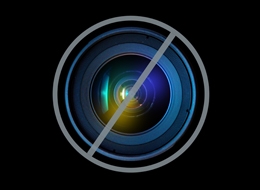Never has a hurricane been more aptly, if tragically, named than Sandy, the superstorm that flooded New York City and battered much of the East Coast. At press time, the storm had killed at least forty-three people and caused an estimated $32 billion in damages to buildings and infrastructure—figures expected to increase in the coming days as emergency personnel pick through the wreckage—and left 8 million homes without electricity.
Sandy is short for Cassandra, the Greek mythological figure who epitomizes tragedy. The gods gave Cassandra the gift of prophecy; depending on which version of the story one prefers, she could either see or smell the future. But with this gift also came a curse: Cassandra’s warnings about future disasters were fated to be ignored. That is the essence of this tragedy: to know that a given course of action will lead to disaster but to pursue it nevertheless.
Sandy is short for Cassandra, the Greek mythological figure who epitomizes tragedy. The gods gave Cassandra the gift of prophecy; depending on which version of the story one prefers, she could either see or smell the future. But with this gift also came a curse: Cassandra’s warnings about future disasters were fated to be ignored. That is the essence of this tragedy: to know that a given course of action will lead to disaster but to pursue it nevertheless.

















